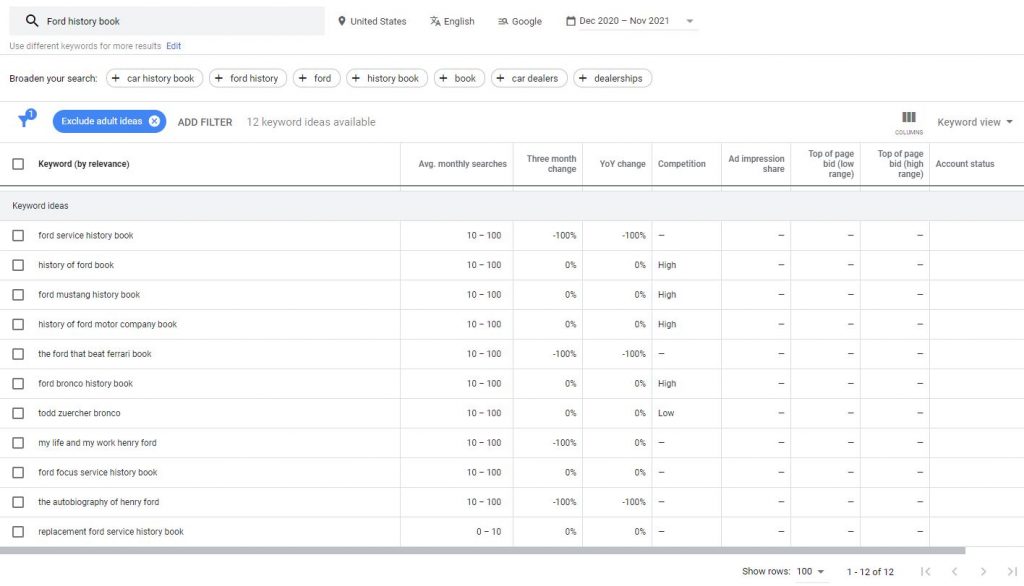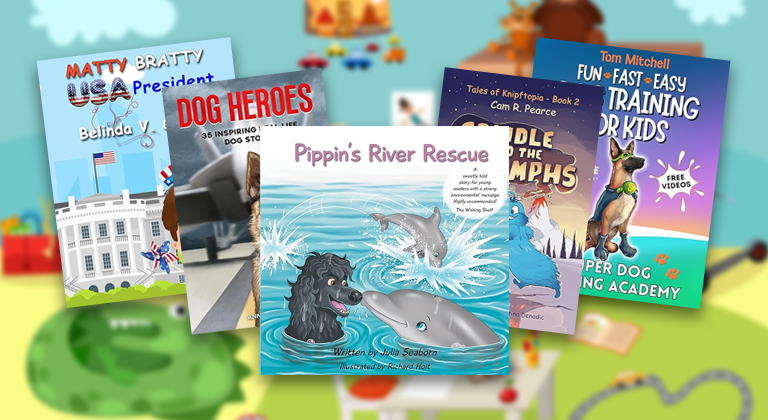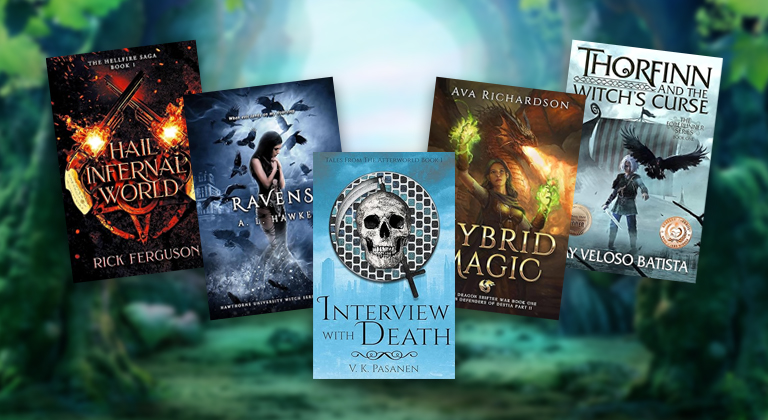An easy way to generate keywords for non-fiction
When it comes to finding relevant search keywords for your book, not all of the techniques you may be familiar with work for all types of books. How readers search for the book they’re interested in is a big factor in how you come up with your keyword list, and this is specifically relevant when it comes to whether your book is fiction or non-fiction. To generate keywords for non-fiction books, it’s not simply a matter of finding similar authors or analyzing the also bought list. Fortunately, there are tools available that can help, and Ginger is here to give you some tips on which ones to use and how to use them.
Advertising on Amazon has a notoriously steep learning curve. However, if you self-publish non-fiction books, there is one tool at your disposal that can help shortcut a lot of the hard work.
The secret to effective Sponsored Ads on Amazon is a list of keywords that deliver for you – but one of the biggest challenges is coming up with them!
For fiction books, using the names of authors who write similar books to yours is a great place to start – as is mining the Also Bought section of their books (and if you’re unsure how to do that, we have a quick Youtube series that takes you through the steps.)
However, it’s a slightly different situation when it comes to non-fiction books, because the way potential customers browse non-fiction is markedly different to how eager new readers find fiction books to read.
Fans of romance, for example, might trawl the Top 100 for their favorite categories (Military Romance is mine) to see what new titles have been released. They’re not looking for a specific book – more a specific type of book.
Non-fiction readers, however, tend to be looking for something specific. If you’re looking for a book about the history of the Ford motor company, for example, you’re not going to simply go to the Top 100 of Automotive History and just see what’s up there.
Instead, you’ll use Amazon’s powerful search engine to do what it was designed to do and find that book for you – perhaps by typing in “Ford history book” or “history of Ford motor company.”
This can actually give you a powerful advantage, since it allows you to leverage Amazon’s search results the way they were intended to be used; and to leverage a powerful free tool to help generate keywords that wouldn’t work as effectively for fiction books.
Go to the Google
Behind Amazon is a search engine very much like Google – one which assigns value to certain keywords and directs visitors who type those words into the search bar to whichever products the algorithm thinks are going to be the most relevant.
It’s a system that’s so close to Google, in fact, that a lot of the tactics and strategies used by businesses to get spotted in Google search results can be used to achieve similar results on Amazon.
You can even use one of the most powerful free tools provided by Google to do this – their Keyword Planner.
The Google Adwords Keyword Planner is a program that analyses billions of search results to generate keyword suggestions for you. You type in something – like “Ford history book” for example – and Google will provide as many relevant or related keyword strings as it can come up with.

As I’d mentioned before, this isn’t such a useful thing when you’re trying to sell fiction books – but it’s INCREDIBLY powerful when you’re trying to sell non-fiction books because the search engine of Amazon is where those readers will go first when they try to find the books they’re looking for.
Now, obviously, it’s not a perfect system because Google and Amazon are separate platforms; but given the millions of searches conducted on both each day, the law of averages produces a startling amount of synchronicity. Besides, if your objective is to simply come up with keyword ideas, the Keyword Planner has the benefit of providing examples of keywords people have actually searched for; and if they’ve searched for those words on Google, it stands to reason that some of them must have made similar searches on Amazon.
Given that one of the best ways to scale your Advertising on Amazon results is to increase the number of keywords you have, using the Keyword Planner makes for a great shortcut – but it’s especially powerful for non-fiction books because it seamlessly aligns with what a potential reader is actually searching for.
Taking it one step further
Having tons of keywords is great, but anybody who is successful using Advertising on Amazon will agree that having tons of relevant keywords is even better. The more relevant your keywords, the more likely Amazon is to give your ad Impressions even if your Bid is set low.
This is why a great next step from the free Keyword Planner tool is to analyze your results using Publisher Rocket.
Publisher Rocket is a tool many self-published authors are familiar with. It is a third-party program that uses Amazon’s API, among other things, to deliver a lot of really valuable information.
In fact, it can even generate lists of keywords for you! But because of the limitations of what Amazon provides via their API, the results are never quite on the same scale as Google’s Keyword Planner.
When you use the two in combination, however, things start to get interesting. Publisher Rocket’s Keyword Search tool enables you to analyze keyword ideas and see how many people are searching for that keyword, and how competitive it is. This is something the Keyword Planner does – but obviously they’re using Google’s information about those keywords, whereas Publisher Rocket is specific to Amazon.
Therefore, once you’ve generated a list of potential keywords for your non-fiction book from Google, you can analyze them in Publisher Rocket to see what Amazon makes of them – enabling you to figure out which ones work best, or even come up with new ideas for generating more of them.

The downside is that this is a manual process – and Publisher Rocket costs $97, unlike Google’s Keyword Planner, which is free – but the two of them do make a very powerful combination and can help you not just come up with new keyword ideas, but also figure out which how much you should be willing to bid on them.
As I said above: This is a technique that doesn’t work as well for fiction books, simply because of the way potential readers find new fiction books. However, if you’ve written a non-fiction book, it can be leveraged to create a much harder-hitting Advertising on Amazon campaign right out of the gate, and one that can deliver much more reliably over the long term.











